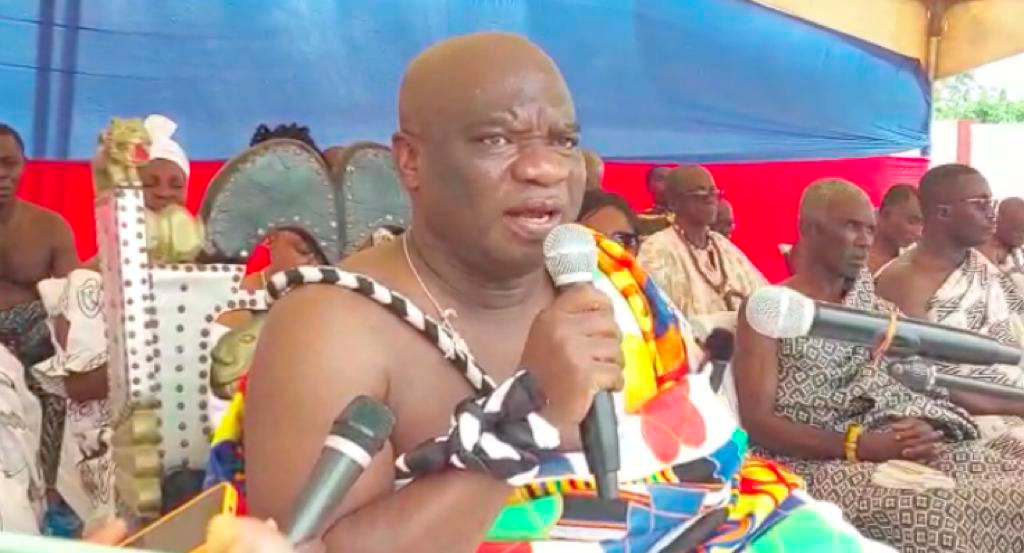
Bakatue launch: Edinamanhen calls for promotion of festivals globally
This year’s Bakatue festival of the chiefs and people of Edina (Elmina) has been launched with a call on the Ghana Tourism Authority (GTA) and other corporate institutions to support efforts at promoting the country’s festivals globally.
An anniversary cloth for activities and the Bakatue was also unveiled at the ceremony.
The Omanhen of the Edina Traditional Area, Nana Kodwo Conduah VI, who made the call, observed that while festivals held immense socio-economic potential for the communities and the country in general, inadequate investment and support for their celebration had minimised gains over the years.
This year would also mark Nana Conduah’s 25 years as paramount chief.
Optimise gain
![]()
Traditional dance groups graced the occasion
Nana Conduah said it was time to consciously give the festivals attention and support, by promoting the festivals effectively and aiming at optimising gains for the community and country.
He called on the government to allocate some of the funding from the tourist attractions to the host traditional authorities.
The Director, Project Development and Investments at the GTA, Benjamin Anane-Nsiah, for his part, said festivals were a critical component of tourism that held a lot of potential for growth if well harnessed.
He gave the assurance that the GTA would work with traditional authorities and areas to properly develop and package their uniqueness to attract the needed tourists to the areas for enhanced socio-economic benefits.
Meaning
Bakatue, which is Fante, translated to English means “the opening of the lagoon.”
It is celebrated to invoke the deity, Nana Benya’s continuous protection of the state and its people.
According to history, the founder of Amankwakrom, which became the Edina State, Kwa Amankwa, migrated from the Savana-based Walata Empire, settled at Techiman for some time before moving to Eguafo near Elmina.
In search of drinking water, he accidentally discovered a small stream and exclaimed “Be-enya” which expression means “I have found or got it”.
He erected a hut near the lagoon where the emigrants refreshed.
History indicates that after finding the lagoon Kwa Amankwa bowed and worshipped and in the solemnity, the god of the Benya Lagoon self-manifested and was with him for eight days, after which a covenant was concluded between him and the deity.
The festival date is said to be the celebration of that meeting as agreed by Amankwa and Nana Benya, the deity.
Some activities mapped out for this year’s celebration include the ‘All colours carnival’ and a state dance.
Bakatue
The Bakatue festival, which attracts a lot of indigenes and guests, both at home and in the diaspora, is celebrated in the first week of July every year, to mark the lifting of the ban on fishing in the Benya Lagoon and the beginning of a new fishing season.
It is a time to reflect on gains made in the community and plan for the future.
Bakatue is one of the oldest festivals in Ghana with celebration dating as far back as the 1800s.
It is overseen by the Omanhen of the area, who is traditionally regarded as a god.
In an interview with the Daily Graphic, a native of the town, Professor Anthony Anane Prah, said the Bakatue was a six-week festival which began with a ban on noise making.
He said three weeks to the festival, various groups and households hold series of dance performances to bring the community together.
On the first Tuesday of July, chiefs and priests process through Elmina to the banks of the Benya lagoon, where rituals are performed.
The traditional priest casts a fishing net three times to mark the beginning of a new fishing season.
The festival is also celebrated to offer thanksgiving to the gods for a good fishing year and pray for a better year in the coming fishing season.
While times have changed and the people are predominantly Christians today, the people of Elmina still celebrate the colourful festival with great enthusiasm, welcoming people from all across the world every year.
Bakatue is about fostering unity, bonding and giving thanks to God the creator, the ancestors and to offer sacrifices to appease souls of the departed who the living still count on for blessings and to chart a path to the future.
Apt theme
The Municipal Chief Executive for Komenda-Edina-Eguafo-Abrem, Solomon Ebo Appiah, said the theme for the festival, “Eat what we grow and grow what we eat”, was apt.
He said the assembly in promoting local agriculture and industries was working on creating alternative livelihoods in the area of fish farming to make the area a tilapia hub.
He added that the move was expected to create jobs to further boost economic activities to be created by the fishing harbour and the Komenda Sugar Factory.
He said the assembly was also in discussions with the Spanish government to promote tourism in the municipality.

 Click the link to read your copy.
Click the link to read your copy.